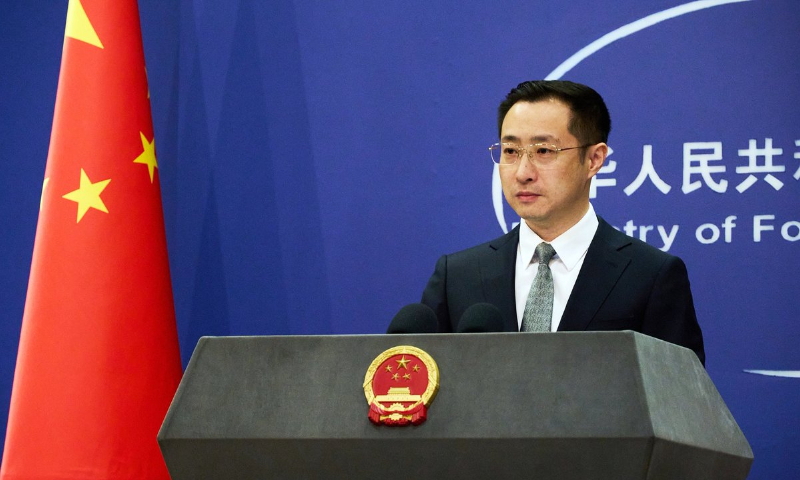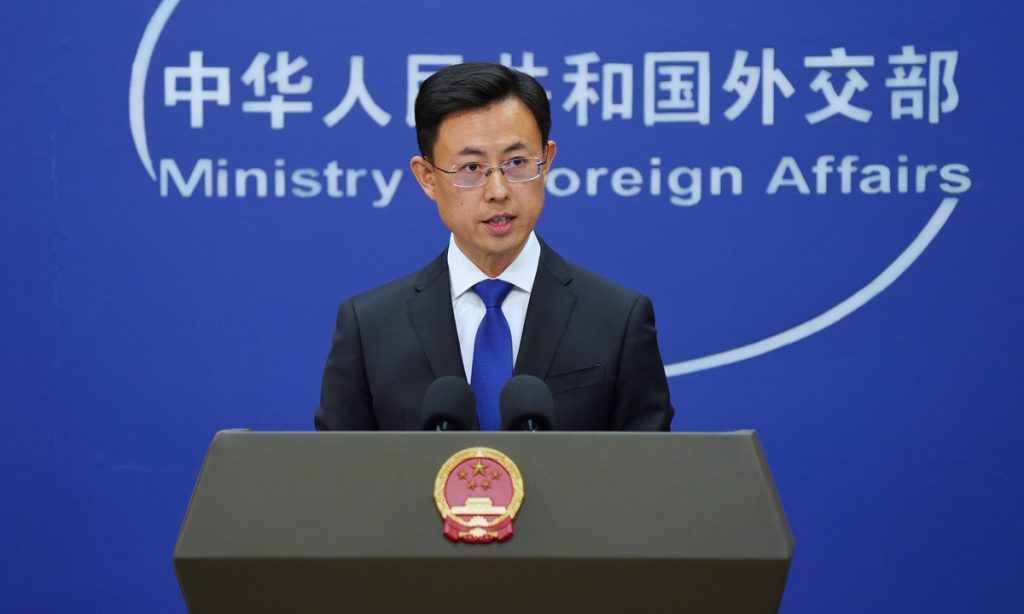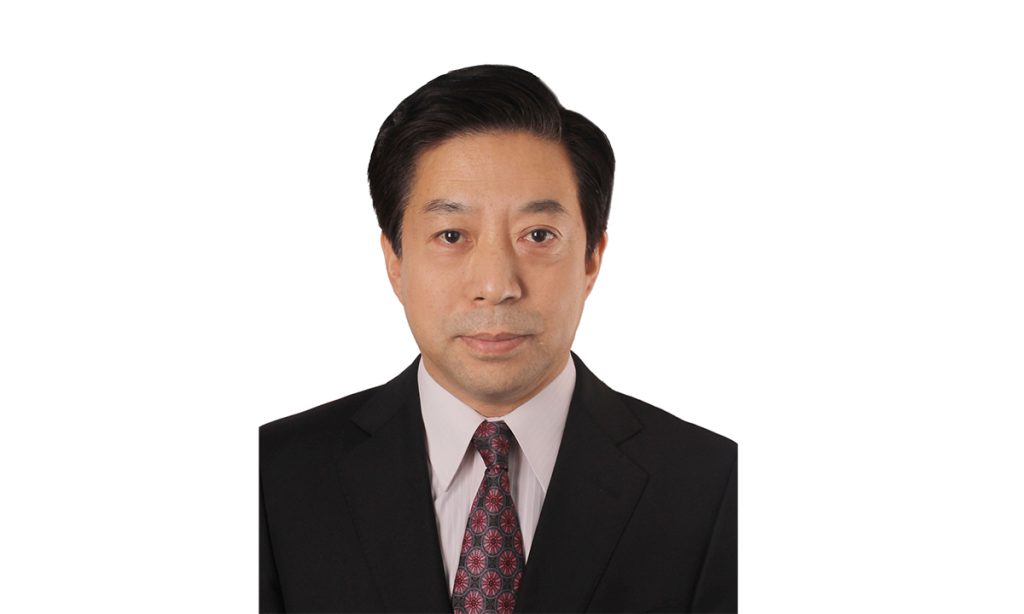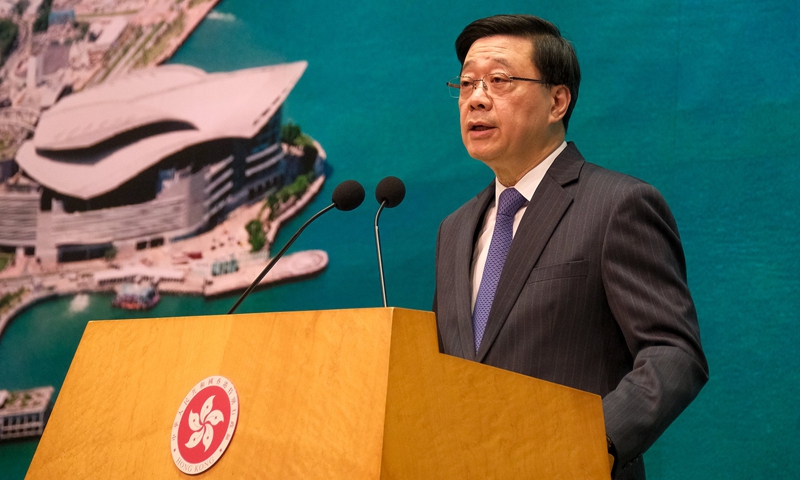Silver scholarliness: Growing Chinese seniors choose to study abroad to enrich retirement life, realize youth dreams

Editor's Note:
With China's population of seniors over 60 surpassing 300 million, ensuring a happy and fulfilling life for all the elderly has become a pressing issue for both families and the nation. How can the new generation of seniors in China break away from traditional norms and embrace a different lifestyle, supported by AI technology, multiculturalism, and an elder-friendly society?
The series of "Old Age, New Trends" will explore emerging trends in the silver economy, the creative social norms among senior citizens, and innovative eldercare services. It will examine the opportunities and challenges presented by an aging society, highlighting the diverse lifestyles of seniors and the booming eldercare industry in China. Beneath these new trends lies a reflection of Chinese modernization, which aims to provide more secure systems and dignified lives for its senior population.While most Chinese employees have just returned from the Qingming holiday between April 4 and 6, Yi Ya is ready for exciting new journeys ahead. Later this month, the 57-year-old retiree will fly to Auckland in New Zealand to participate in a weeks-long study program. Later in May, Yi plans to spend two weeks each in London and Dublin, where she will attend classes and explore the local sights in her free time.
This isn't Yi's first experience with short-term study abroad. Just four days after officially retiring two years ago, she boarded a plane to Malta for a language immersion program, where she became the oldest student in her class.
"Learning has always been my lifelong dream, and I believe now is the perfect time for me to study abroad," Yi told the Global Times. "It's truly wonderful to return to student life after retirement."
Similarly, 56-year-old A-Ying (pseudonym) recently arrived in Japan at the end of March with a student visa, ready to embark on her two-year journey at a local Japanese language school.
Both Yi and A-Ying are among the expanding Chinese seniors who choose to study abroad after retirement. Whether participating in short-term study programs or pursuing formal degrees, an increasing number of elderly students are appearing in classrooms around the world. Sitting alongside classmates who are often one or even two generations younger, they attend lectures, take notes, and engage in group discussions. For these "silver-haired students," studying abroad after retirement may be a way to fulfill dreams left unachieved in their youth, or simply a means to enrich their later years.
"Retirement for Chinese seniors isn't just about square dancing. It should be vibrant and diverse, and studying abroad could also be one part of that," A-Ying told the Global Times.
Pursue a dream
Before her retirement, Yi held a management position at a financial institution in Guangzhou, South China's Guangdong Province. As the intense and busy work pace gradually eased in the six months before her retirement, the then 55-year-old began to envision a fulfilling retirement life.
The idea of studying abroad naturally came to her mind. "Studying abroad has always been a dream of mine. I couldn't pursue it when I was younger for various reasons, but I thought that once I retired, I could participate in study tours to gain knowledge while traveling the world," she told the Global Times.
With enthusiasm and anticipation, Yi began meticulous preparations for her study tour a few months before her retirement, covering everything from destinations to study programs and visas. Ultimately, just four days after retiring, she flew to Malta to start a three-month journey of learning English.
Despite having traveled abroad many times before her retirement, this was Yi's first experience staying in a foreign country for several months as a student. The program cost Yi over 60,000 yuan ($8,172). She was assigned to the A1 class on the first day, a class designed for students with no prior knowledge of English.
Language barrier is a major challenge for many older Chinese individuals studying abroad. Yi mentioned that during her first few weeks in Malta, she faced numerous difficulties due to the language barrier. When she first arrived at her student apartment, a teacher introduced her to some of the facilities, but she barely understood. "As a result, I couldn't even figure out how to turn on the hot water in the apartment, so I had to go to the public bath that day," she said.
Fortunately, immersed in an English-speaking environment, Yi made rapid progress in her language skills. After completing the three-month English course in Malta, she could handle basic daily conversations. Although Yi studied English before in university, after decades of not using it in her career, she had almost forgotten the language. "Now that I've picked it up again. It's not as difficult as I imagined," she said.
For A-Ying, who studies in Japan, language seems to be a bigger hurdle to overcome. Before her trip, she enrolled in a Japanese language training course, and dedicated nine months to passing the Japanese Language Proficiency Test N3 exam. "I'm quite proud of myself," she smiled.
A-Ying had previously felt lost about how to spend her time after retirement, unsure of what to do with her newfound free time. However, she quickly decided to study in Japan, motivated by her son's job there and her many previous trips to the country. "More importantly, I want to experience the study abroad life that I missed out when I was younger," she said.
"While enthusiasm for studying abroad has waned among youth, some middle-aged and elderly individuals in China are bucking the trend by pursuing education overseas," said an article by The Straits Times on March 14. In Yi's view, the primary difference between "silver-haired students" and their teenage counterparts is that, the former focus more on the process of studying abroad, while the latter pays more attention to its result.
"Young people study abroad with a strong sense of purpose, laying the foundation for their future lives," she said. "For us elderly students, studying abroad is simply about planting beautiful flowers in our life's garden - we are enjoying the moment."
An expanding group
Data shows that in 2019, the proportion of individuals aged over 50 participating in overseas study programs was approximately 3 percent among all the participators of such programs. This figure has rapidly increased to 20 percent by 2023, reported by Women Today Weekly, a newspaper based in Central China's Hunan Province.
The market for study abroad programs catering to seniors is naturally flourishing in China. In first- and second-tier cities, many study abroad agencies have introduced specialized programs for the elderly, the Global Times learned from study abroad agencies.
A Shanghai-based study abroad service provider told the Global Times that it offers programs ranging from two weeks to a year, with destinations including Europe, Australia, and Japan, accommodating participants as old as 70.
The rapid rise of the "silver-haired education" market not only represents a new growth point in China's silver economy, but also reflects the deep-seated desire of contemporary seniors for a richer spiritual life, Peng Xizhe, director of the Fudan Institute on Ageing, told the Global Times.
On Chinese social media platforms, an increasing number of "silver-haired students" have shared their personal stories of studying abroad: one user in her fifties and her husband both applied to study archaeology at Leiden University in the Netherlands; another user in her sixties posted her experiences studying liberal arts at a private university and computer science at a community college in the US since 2023.
"Born in the 1960s in China, our generation is quite unique. For many urban residents like me, we received an education and experienced two decades of the country's economic transformation, during which we enjoyed many opportunities for development and accumulated some wealth," Yi told the Global Times. She added that it is not surprising for this generation to study abroad after retirement, as many of them are eager for knowledge, curious about new experiences, and have a strong desire for a fulfilling spiritual life.
Yi herself regularly shares her study abroad experiences on several major social media platforms under the screen name "Yue Zou Yue Yuan." Her posts attracted many retirees, who commented with questions about the details of studying abroad, such as the duration of programs, and the preparations needed.
A-Ying has also received many online inquiries from her peers who are interested in studying abroad in Japan. She believes that, to be a "silver-haired student," one needs to consider some practical issues, such as family support, financial security for their studies, and the potential impact on their family's lives.
"Moreover, some foreign schools have higher requirements for elder applicants, so one must be well-prepared before deciding to study abroad," she told the Global Times. "These considerations must be carefully thought out, rather than taken on a whim."
'Live and learn'
China's silver economy may reach approximately 30 trillion yuan ($4.1 trillion) by 2035, reported the People's Daily in May 2024. As more domestic agencies are springing up to serve the elderly who want to study abroad, industry experts and scholars anticipate that, personalized education will become an increasingly important part of China's silver economy market.
Elder adults studying abroad is a positive trend, Peng said. "There's an old Chinese saying: 'Live and learn,'" he exampled. Whether it's domestic programs for elderly learners or degree education tailored for seniors, or overseas study tours, all of these are meeting the personalized needs of elder adults who wish to keep pace with the times and embrace lifelong learning, he said.
Nonetheless, Peng cautions "silver-haired students" and related study abroad institutions to pay close attention to personal health and safety while studying abroad, as well as to respect local laws and regulations. "Some elderly people may have underlying health conditions, so comprehensive overseas insurance is crucial."
At present, study abroad programs for seniors in China typically range from 20,000 to 70,000 yuan, covering tuition, accommodation, meals, and insurance, and the program duration lasts from two weeks to several months, the Global Times learned. Other expenses, such as visa application fees and transportation costs, are generally borne by the participants themselves.
Since her retirement two years ago, Yi has participated in study abroad programs in four countries. Yi believes that her three-month program in Malta is much cheaper than simply traveling around Malta and its surroundings for three months. "Moreover, I took English classes locally and immersed myself in the local lifestyle, which was more rewarding than simply traveling there," she said.
On her social media accounts, Yi has shared many photos from her study abroad experiences in different countries. In the photos, she appears youthful and vibrant.
"Some may say it's strange for someone my age to spend so much money studying abroad, instead of looking after grandchildren at home, or dancing in the square. Don't mind them," she said. "Don't let traditional thinking constrain you. Just love yourself and treat life as a grand adventure."






